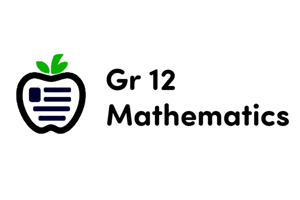Podcast
Questions and Answers
What is the formula used to calculate the sum of a finite arithmetic series?
What is the formula used to calculate the sum of a finite arithmetic series?
- S = (n/2) × (a - l)
- S = n × (a + l)
- S = (n/2) × (a + l) (correct)
- S = n × (a - l)
How is the formula for the sum of a finite arithmetic series derived?
How is the formula for the sum of a finite arithmetic series derived?
- By using the formula for infinite geometric series
- By summing the terms individually
- By pairing the first and last terms, second and second-to-last terms, and so on (correct)
- By using the recursive formula
What is the condition for an infinite arithmetic series to converge?
What is the condition for an infinite arithmetic series to converge?
- The series is infinite and the common difference is non-zero
- The series is finite
- The common difference is zero (correct)
- The common difference is non-zero
What is one of the real-world applications of arithmetic series?
What is one of the real-world applications of arithmetic series?
What is the recursive formula used to define each term in an arithmetic sequence?
What is the recursive formula used to define each term in an arithmetic sequence?
What is the sum of a finite arithmetic series equal to?
What is the sum of a finite arithmetic series equal to?
What is the purpose of the formula for the sum of a finite arithmetic series?
What is the purpose of the formula for the sum of a finite arithmetic series?
What is an example of a scenario where arithmetic series is used?
What is an example of a scenario where arithmetic series is used?
Flashcards are hidden until you start studying
Study Notes
Sum Of Finite Series
- An arithmetic series is the sum of a finite number of terms in an arithmetic sequence
- The sum of a finite arithmetic series can be calculated using the formula:
- S = (n/2) × (a + l)
- Where:
- S = sum of the series
- n = number of terms
- a = first term
- l = last term
Formula Derivation
- The formula for the sum of a finite arithmetic series can be derived by:
- Pairing the first and last terms, second and second-to-last terms, and so on
- Noting that the sum of each pair is equal to the average of the first and last terms multiplied by the number of terms
- Simplifying the expression to arrive at the formula S = (n/2) × (a + l)
Infinite Series Convergence
- An infinite arithmetic series converges if the common difference is zero (d = 0)
- If the common difference is not zero, the series diverges
- The convergence of an infinite arithmetic series can be determined using the following rules:
- If the series is finite, it converges
- If the series is infinite and the common difference is zero, it converges
- If the series is infinite and the common difference is not zero, it diverges
Real-world Applications
- Arithmetic series have numerous real-world applications, including:
- Calculating the total cost of a series of payments
- Determining the total distance traveled by an object moving with a constant acceleration
- Modeling population growth or decline
- Analyzing financial data, such as investment returns or depreciation
Recursive Formulae
- A recursive formula is a formula that defines each term in an arithmetic sequence using the previous term
- The recursive formula for an arithmetic sequence is:
- an = an-1 + d
- Where:
- an = nth term
- an-1 = (n-1)th term
- d = common difference
- Recursive formulae can be used to calculate individual terms in an arithmetic sequence or to find the sum of a finite series.
Arithmetic Series
- An arithmetic series is the sum of a finite number of terms in an arithmetic sequence.
Formula for Sum of Arithmetic Series
- The sum of a finite arithmetic series can be calculated using the formula: S = (n/2) × (a + l)
- Where:
- S = sum of the series
- n = number of terms
- a = first term
- l = last term
Derivation of Formula
- The formula can be derived by pairing the first and last terms, second and second-to-last terms, and so on.
- The sum of each pair is equal to the average of the first and last terms multiplied by the number of terms.
- The expression can be simplified to arrive at the formula S = (n/2) × (a + l)
Convergence of Infinite Arithmetic Series
- An infinite arithmetic series converges if the common difference is zero (d = 0).
- If the common difference is not zero, the series diverges.
- The convergence of an infinite arithmetic series can be determined using the following rules:
- If the series is finite, it converges.
- If the series is infinite and the common difference is zero, it converges.
- If the series is infinite and the common difference is not zero, it diverges.
Real-world Applications of Arithmetic Series
- Arithmetic series have numerous real-world applications, including:
- Calculating the total cost of a series of payments.
- Determining the total distance traveled by an object moving with a constant acceleration.
- Modeling population growth or decline.
- Analyzing financial data, such as investment returns or depreciation.
Recursive Formula for Arithmetic Sequence
- A recursive formula is a formula that defines each term in an arithmetic sequence using the previous term.
- The recursive formula for an arithmetic sequence is: an = an-1 + d
- Where:
- an = nth term
- an-1 = (n-1)th term
- d = common difference
- Recursive formulae can be used to calculate individual terms in an arithmetic sequence or to find the sum of a finite series.
Studying That Suits You
Use AI to generate personalized quizzes and flashcards to suit your learning preferences.




